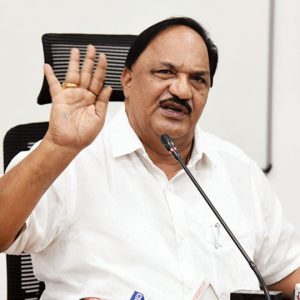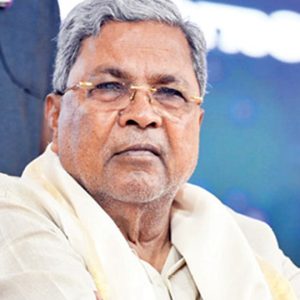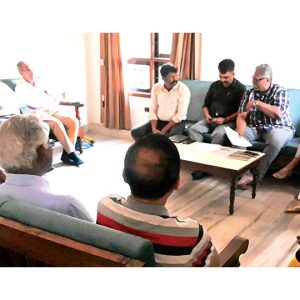By T.J.S. George
The time gap between voting day and results day is one of the afflictions of democracy. The tension is excruciating when it’s an election that will decide the temper of life for a considerable length of time. Will the freedoms we have taken for granted for 68 years continue as before, or will they be amended by a new set of values with new definitions of freedom and democracy? To know the answer, we must necessarily live through the pressure of waiting. One way to cope is to think of electioneering in the old days; that will keep the mind on elections, but without the stress of the immediate.
The Constitution was signed on January 26, 1950. Those were the days of idealism and high thinking. Politicians were careful about the language they used, the manners they maintained. The way Jawaharlal Nehru mingled with the masses was a spectacle in itself. Leaders like Sardar Patel and Rajendra Prasad did not have the populist touch, but the trust and respect they enjoyed put them on par with the glamorous Nehru.
Nehru’s friends and fellow Ministers went their separate ways for the first general election in 1950-51. There were more than 50 parties in all. Prominent among them were Syama Prasad Mukherjee’s Jan Sangh, J.B. Kripalani’s Kisan Mazdoor Praja Parishad and B.R. Ambedkar’s Scheduled Castes Federation (later named Republican Party). Jayaprakash Narayan and Ram Manohar Lohia headed the Socialist Party and there was S.A. Dange’s Communist Party of India. Not one of them proved a match to the Indian National Congress.
In a way the Congress played a game of deception. The Indian National Congress was not a political party. It was a national movement, representing all Indians in their common struggle for freedom. The universal appeal it thus acquired could not in all fairness be exploited for the partisan interests of one group of people competing with other groups of people in a democratic election. This was one reason Mahatma Gandhi asked for the dismantling of the Congress after independence. But the tacticians who claimed to be his followers rejected his advice and made unfair use of the Congress name. In two generations they lost the advantage they had wrongly gained.
In the first generation, though, electioneering adhered to the best standards of democracy.
The style changed — as did everything connected with politics — after Indira Gandhi and her Emergency rule. It was during her time that money became a powerful element of democracy. She was also the first to introduce sloganeering as an election weapon. It has to be admitted that her slogan, Garibi Hatao, did influence voters. During Vajpaye’s reign, Pramod Mahajan introduced corporate-style electioneering with “India Shining” as the dominant slogan. It flopped.
The big change we saw in electioneering was in 2014 when hitech took over. What was called Obama Style of electioneering saw armies of educated youth checking in as volunteers and electrifying the scene with hitherto unheard techniques such as microtargeting of voter groups and social media outreach. They “minted data” and launched “digital campaigns.”
But the quality of electioneering nosedived. The Karnataka election saw top leaders using unbecoming language. Personal attacks were made often and Amit Shah spoke of the “10 percent sarkar of Congress,” provoking reminders that the BJP’s 15 percent sarkar had landed in jail. There were apprehensions about dirty tricks coming into play. The Prime Minister’s statement that when his party won there would be allegations against voting machines, struck many as taking advance bail.
Some attacks invited strong but civilised rebuttals, none stronger or more civilised than a written message by Devanur Mahadeva, one of Kannada’s best known novelists with a mind independent enough to decline a nomination to the Rajya Sabha. He wrote an open letter to Anant Kumar Hegde, the rabid communalist from coastal Karnataka. “It is frightening,” Devanur wrote, “to have to listen to the words you have spoken: ‘Those who are unaware of their parentage are the ones who call themselves secularists.’ Now we have to make you aware of your own parentage. It is Hatred that is your father, Intolerance your mother, Illusion your ancestry, Mithya (falsehood) the source of your knowledge. Another statement of yours: ‘Every human being is an animal when he is born; it is what he does that makes him a human being.’ In your case, I somehow feel it is quite the opposite.”
Now we know why Plato said there would be no end to the troubles of humanity till philosophers became Kings.
[email protected] / www.tjsgeorge.info








Recent Comments